Products of AI: Racism and Bias
AI-generated images of subjects such as poverty, children and victims of sexual violence are flooding online photo archives, with non-governmental organizations (NGOs) increasingly using them, according to global health experts. Experts warn that this could signal a “new era of poverty exploitation culture.”
“These images reflect the default view of poverty – children holding empty bowls, cracked ground… very stereotypical,” said Arsenii Alenichev, a researcher at the Institute of Tropical Medicine in Antwerp who studies the production of global health images .
Mr. Alenichev collected more than 100 AI-generated images of extreme poverty, which were used by individuals or NGOs in social media campaigns against hunger and sexual violence.
The images he shared with the Guardian show exaggerated, stereotypical scenes: children huddled in mud puddles; an African girl in a wedding dress with tears streaming down her face. In a recent commentary published in the Lancet Global Health journal, he argued that the images amounted to “poverty porn version 2.0”.
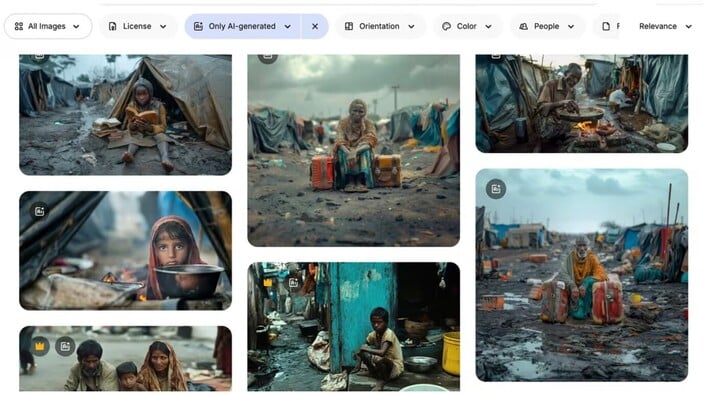
Screenshot showing an AI-generated image of “poverty” on a photo website. (Photo: Freepik)
Mr. Alenichev and many other experts say the use of AI images is increasing due to concerns about copyright and costs. The US government ’s budget cuts to NGOs have made the problem worse.
“Clearly, a lot of organizations are starting to look at using AI images instead of real photos because it’s cheap. You also don’t have to worry about copyright and a lot of other things,” he said.
Is the responsibility on the user or the platform?
AI-generated images of poverty appear on dozens of photo sites, including Adobe Stock Photos and Freepik. Many are captioned: “surreal child in refugee camp”; “Asian children swimming in a river filled with rubbish”; “white volunteer providing medical advice to black children in an African village”; and more. Adobe sells the rights to the last two images on that list for around £60.
“These photos are blatantly racist and should not be allowed to be posted because they are the worst stereotypes about Africa, India or anything you can think of,” Alenichev said.
Joaquín Abela, CEO of Freepik, said the responsibility for using such extreme images lies with users, not platforms like his. In his view, AI stock photos are created by a global community of users, who can receive royalties when Freepik customers choose to buy their photos.
Freepik has tried to curb the biases found in its photo libraries by “injecting diversity.” At the same time, they also try to ensure gender balance in photos of lawyers and executives.
But, he says, his platform can only do so much. “It’s like trying to dry up the ocean. We’ve tried, but the reality is, if clients all over the world want their images to look a certain way, there’s absolutely nothing anyone can do about it.”
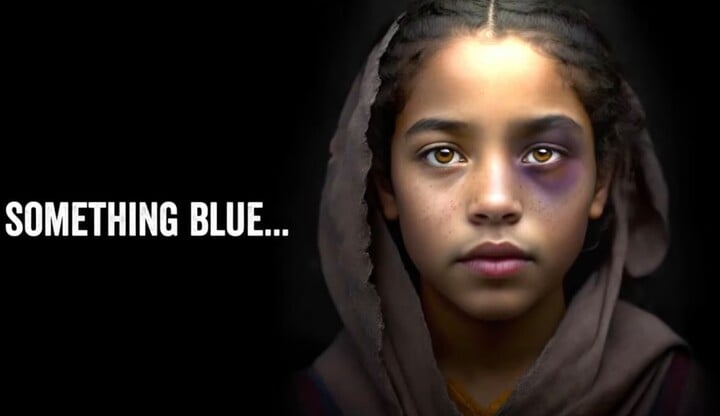
AI-generated image from charity Plan International's 2023 anti-child marriage campaign, which aims to protect "girls' privacy and dignity." (Photo: Plan International)
Many prestigious organizations have used AI-generated images, even the United Nations.
Last year, the United Nations posted a video on YouTube featuring “reenactments” of sexual violence, including the testimony of a Burundian woman describing being raped and left for dead by three men in 1993. The content was entirely generated by AI. The video was removed after the Guardian contacted the UN for an interview.
A UN spokesperson later explained why the video was taken down. “We believe the video was improperly generated by AI and may pose information integrity risks, mixing real footage with artificial content that appears to be real.”
AI-generated products have long been found to be copycats, sometimes exaggerating the truth. Mr. Alenichev said the proliferation of these biased images could make the problem worse, because the images can be spread across the vast internet and used to train the next generation of AI.
A spokesperson for Plan International said that the NGO currently “recommends against using AI to depict children.”
Minh Hoan
Source: https://vtcnews.vn/chuyen-gia-bao-dong-tinh-trang-ai-tao-anh-rap-khuon-phong-dai-ar972160.html


![[Photo] Da Nang residents "hunt for photos" of big waves at the mouth of the Han River](https://vphoto.vietnam.vn/thumb/1200x675/vietnam/resource/IMAGE/2025/10/21/1761043632309_ndo_br_11-jpg.webp)



![[Photo] Prime Minister Pham Minh Chinh meets with Speaker of the Hungarian National Assembly Kover Laszlo](https://vphoto.vietnam.vn/thumb/1200x675/vietnam/resource/IMAGE/2025/10/20/1760970413415_dsc-8111-jpg.webp)
![[Photo] Prime Minister Pham Minh Chinh received Mr. Yamamoto Ichita, Governor of Gunma Province (Japan)](https://vphoto.vietnam.vn/thumb/1200x675/vietnam/resource/IMAGE/2025/10/21/1761032833411_dsc-8867-jpg.webp)
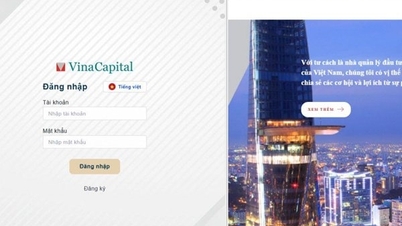



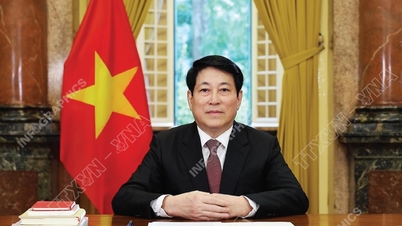
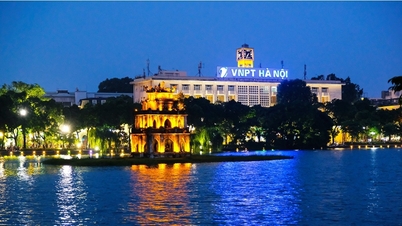

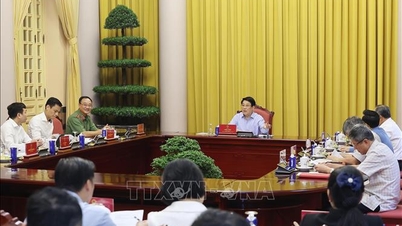
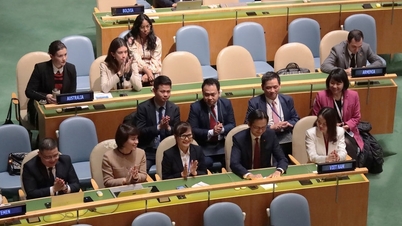

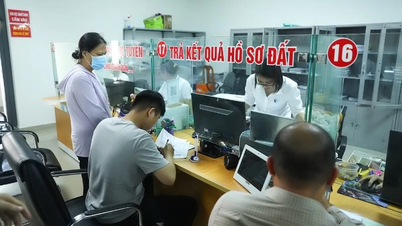

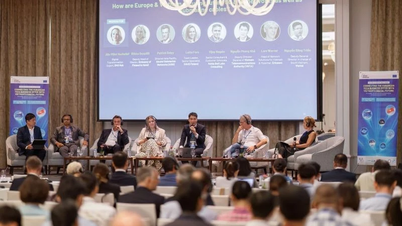
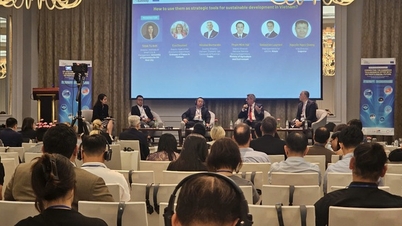


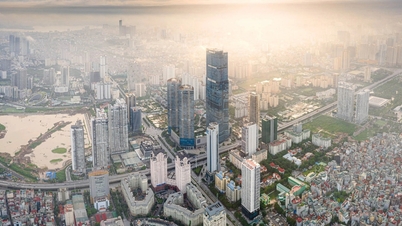







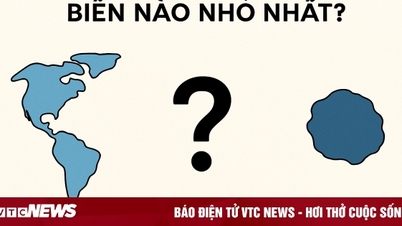


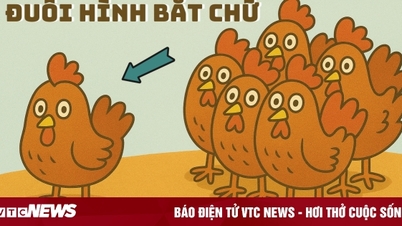
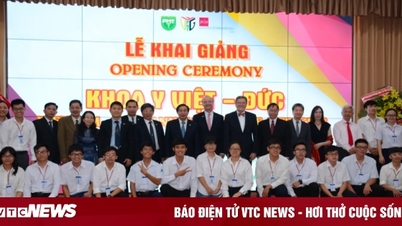




















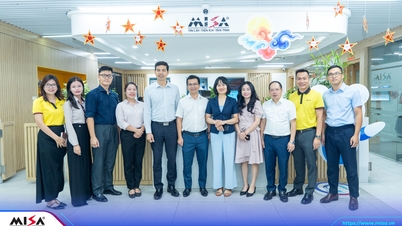













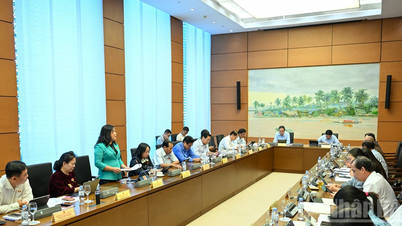
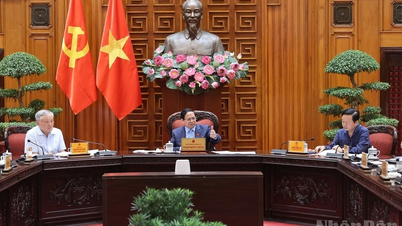
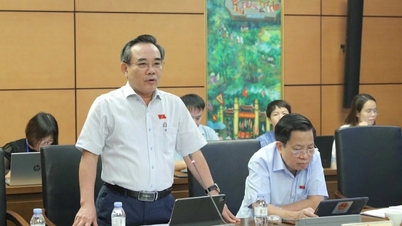
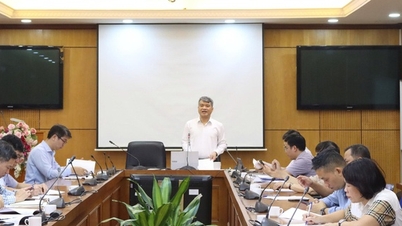
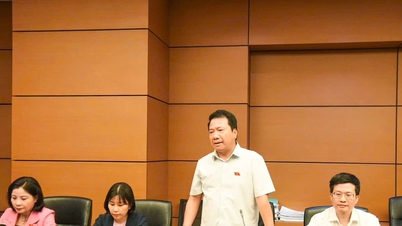

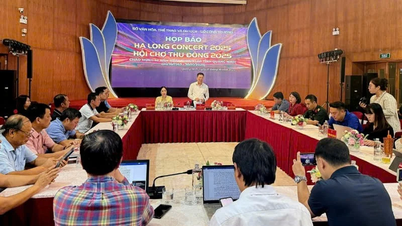
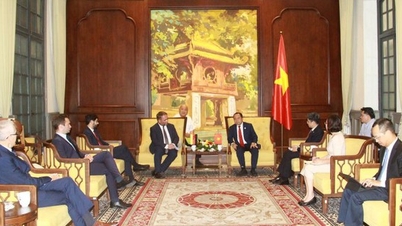

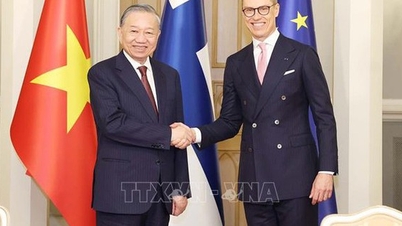
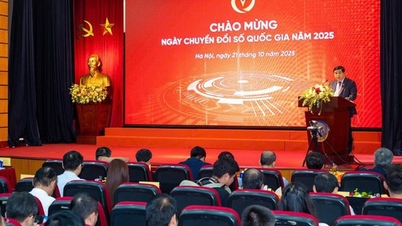

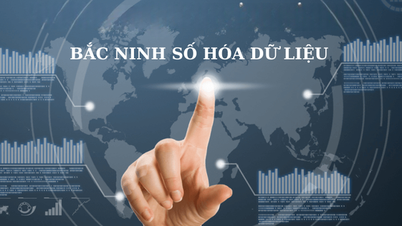
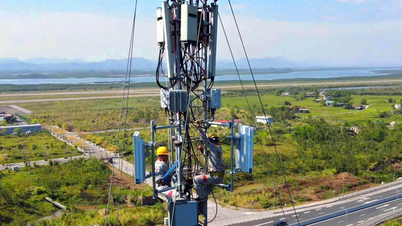
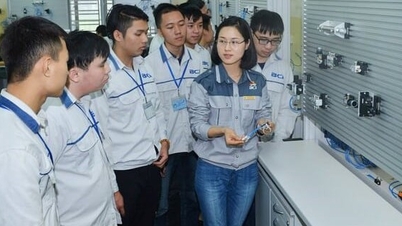
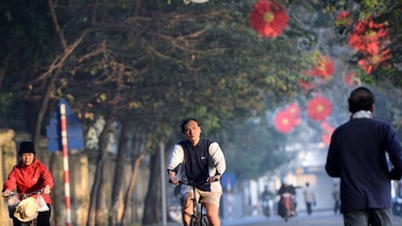

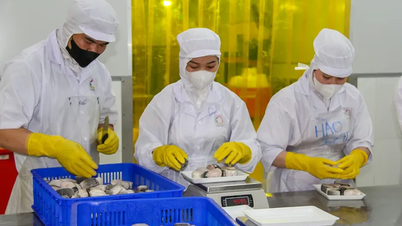

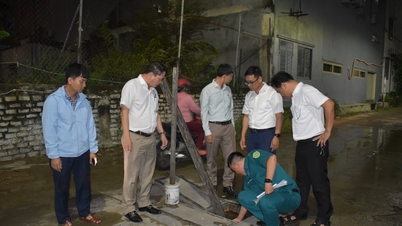

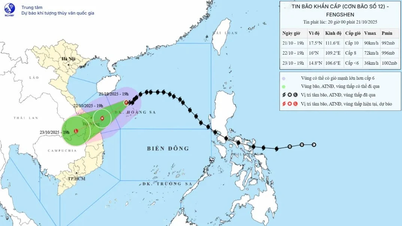

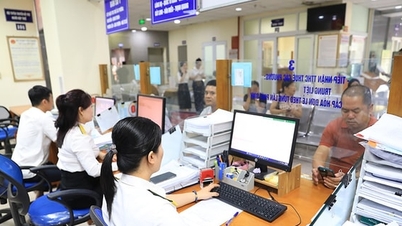

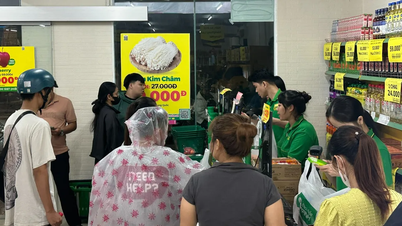










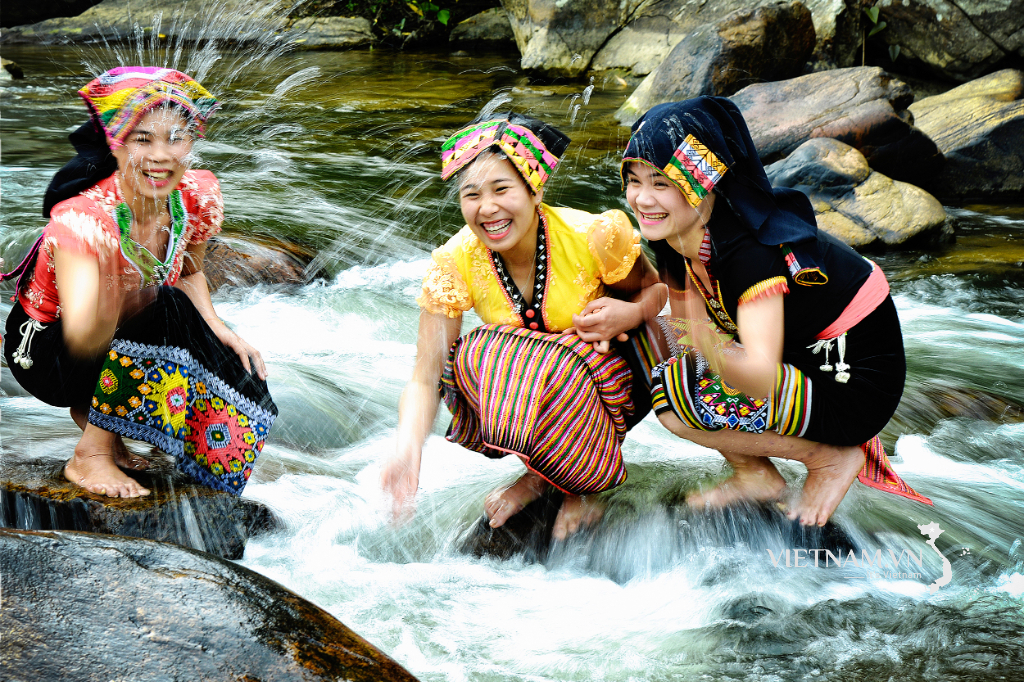



Comment (0)